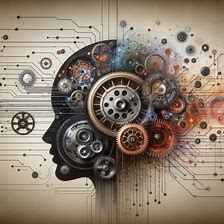In a country with a myriad of cultures, beliefs, and experiences, it’s inevitable that disagreements will arise. However, it’s crucial to recognize that differing opinions do not stem from a lack of intelligence or morality, nor do they indicate a detachment from reality. Instead, they often emerge from a rich tapestry of unique life experiences and thought processes that shape each individual’s worldview.
The statement, “Many of the people you disagree with are not stupid, evil, or insane, but have had thoughts and experiences you haven’t which led them to different conclusions,” encapsulates the essence of empathy and understanding in human interactions. It’s a reminder that behind every belief and opinion lies a personal journey that has informed that perspective.
When we encounter views that clash with our own, it’s an opportunity for growth and learning. Engaging with those who hold different beliefs can broaden our horizons, challenge our preconceptions, and foster a deeper understanding of the complex world we inhabit. It’s through this exchange of ideas that societies can progress and innovate.
Diversity of thought is a cornerstone of a dynamic society. It encourages critical thinking, sparks creativity, and prevents stagnation. When we appreciate the value of different perspectives, we create a more inclusive and resilient community. It’s not about agreeing on everything; rather, it’s about respecting the validity of each person’s experiences and the conclusions they’ve drawn from them.
So in a nutshell, embracing the diversity of human experience and thought is not just beneficial but essential for a healthy society. It paves the way for constructive dialogue, mutual respect, and a collective effort towards a better future for all. Let us strive to understand before seeking to be understood, and remember that our shared humanity is the common ground on which we stand.
@newdaystarts



